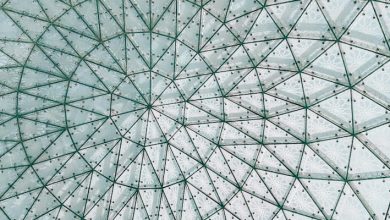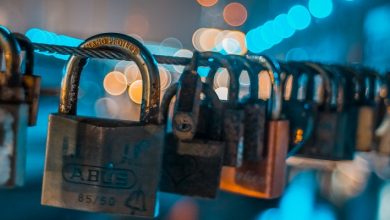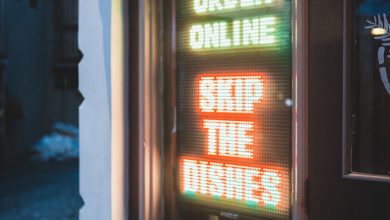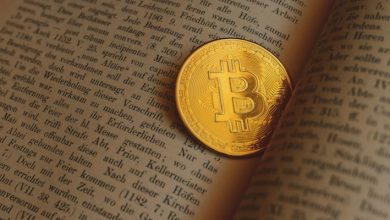The Future of Decentralized Autonomous Organizations (DAOs)

- Understanding the concept of Decentralized Autonomous Organizations (DAOs)
- The rise of DAOs: A new era of decentralized governance
- Challenges and opportunities for DAOs in the digital age
- Exploring the potential impact of DAOs on traditional organizations
- The role of smart contracts in enabling DAOs to function autonomously
- Regulatory considerations for the future of DAOs
Understanding the concept of Decentralized Autonomous Organizations (DAOs)
Decentralized Autonomous Organizations (DAOs) are a revolutionary concept in the world of blockchain technology. DAOs are essentially organizations that operate without the need for centralized control or management. Instead, they rely on smart contracts and code to automate decision-making processes and governance.
DAOs are built on blockchain technology, which ensures transparency, security, and immutability. This means that once a decision is made and recorded on the blockchain, it cannot be altered or tampered with. This level of trust and security is what makes DAOs so appealing to many in the crypto community.
One of the key features of DAOs is their ability to operate autonomously, without the need for human intervention. This is achieved through the use of smart contracts, which are self-executing contracts with the terms of the agreement directly written into code. Smart contracts ensure that all decisions and transactions within the DAO are carried out automatically, based on predefined rules and conditions.
The rise of DAOs: A new era of decentralized governance
Decentralized Autonomous Organizations (DAOs) are revolutionizing the way organizations are governed. DAOs operate on blockchain technology, allowing for transparent and autonomous decision-making processes. This new era of decentralized governance is empowering individuals to participate in decision-making without the need for intermediaries.
DAOs are creating a more inclusive and democratic system where members can vote on proposals and contribute to the growth of the organization. This shift towards decentralized governance is enabling greater transparency and accountability, as decisions are made collectively by the community rather than a centralized authority.
With the rise of DAOs, we are witnessing a paradigm shift in how organizations are structured and operated. This new model of governance is disrupting traditional hierarchies and empowering individuals to have a direct impact on the direction of the organization. As DAOs continue to gain traction, we can expect to see a more decentralized and democratic approach to decision-making in various industries.
Challenges and opportunities for DAOs in the digital age
Decentralized Autonomous Organizations (DAOs) face a unique set of challenges and opportunities in the digital age. As these organizations operate without a central authority, they must navigate various obstacles while leveraging the benefits of blockchain technology.
- One of the main challenges for DAOs is regulatory uncertainty. Governments around the world are still grappling with how to classify and regulate these entities, which can create legal hurdles for their operation.
- Another challenge is security. DAOs are vulnerable to cyber attacks and hacking attempts, which can compromise their operations and assets.
- On the other hand, DAOs have the opportunity to revolutionize traditional business models by enabling transparent and efficient decision-making processes. This can lead to increased trust among stakeholders and greater accountability.
- Additionally, DAOs can facilitate global collaboration and innovation by allowing individuals from different parts of the world to participate in projects and initiatives.
In conclusion, while DAOs face challenges in terms of regulation and security, they also have the potential to transform the way organizations are structured and operated in the digital age. By addressing these challenges and seizing opportunities, DAOs can pave the way for a more decentralized and inclusive economy.
Exploring the potential impact of DAOs on traditional organizations
Exploring the potential impact of Decentralized Autonomous Organizations (DAOs) on traditional organizations is crucial in understanding the future landscape of business operations. DAOs have the potential to revolutionize the way organizations are structured and governed, leading to increased transparency, efficiency, and trust among stakeholders.
One of the key ways in which DAOs can impact traditional organizations is through their decentralized nature. By removing the need for centralized control and decision-making, DAOs can empower individuals to participate in organizational governance and decision-making processes. This can lead to more inclusive and democratic decision-making, as well as greater accountability and responsiveness to stakeholders.
Furthermore, DAOs can also streamline operations and reduce costs by automating various processes through smart contracts. This can lead to increased efficiency and productivity, as well as reduced overhead costs for traditional organizations. Additionally, DAOs can enable organizations to tap into a global talent pool and access new markets, leading to increased innovation and competitiveness.
Overall, the potential impact of DAOs on traditional organizations is significant. By embracing decentralized governance and automation, organizations can adapt to the changing business landscape and stay ahead of the curve. It is essential for traditional organizations to explore the possibilities that DAOs offer and consider integrating them into their operations to remain competitive in the future.
The role of smart contracts in enabling DAOs to function autonomously
Smart contracts play a crucial role in enabling Decentralized Autonomous Organizations (DAOs) to function autonomously. These self-executing contracts are stored on a blockchain and automatically execute when predetermined conditions are met. By utilizing smart contracts, DAOs can operate without the need for intermediaries or centralized control, allowing for trustless and transparent decision-making processes.
Smart contracts are essential for DAOs as they help facilitate governance mechanisms, such as voting on proposals and distributing funds. Through the use of smart contracts, DAO members can participate in decision-making processes securely and efficiently. Additionally, smart contracts ensure that the rules and regulations of the organization are enforced automatically, reducing the risk of human error or manipulation.
Furthermore, smart contracts enable DAOs to interact with external systems and execute complex transactions without the need for manual intervention. This automation not only increases the efficiency of DAO operations but also reduces the potential for fraud or corruption. By leveraging smart contracts, DAOs can achieve a higher level of autonomy and decentralization, ultimately leading to a more resilient and sustainable organizational structure.
Regulatory considerations for the future of DAOs
When considering the future of Decentralized Autonomous Organizations (DAOs), it is crucial to take into account the regulatory landscape that surrounds them. As DAOs continue to gain popularity and expand their reach, regulators are starting to pay closer attention to ensure compliance with existing laws and regulations.
One of the key regulatory considerations for the future of DAOs is how they will be classified and regulated by government authorities. Currently, there is a lack of clarity around the legal status of DAOs, which can create uncertainty for both creators and participants. Regulators will need to establish clear guidelines to determine the legal framework within which DAOs operate.
Another important aspect to consider is investor protection. As DAOs involve the pooling of funds from multiple participants for various projects, there is a risk of fraud or misuse of funds. Regulators will need to implement measures to safeguard investors and ensure transparency within DAOs to prevent any potential abuse.
Additionally, data privacy and security are crucial considerations for the future of DAOs. With the increasing amount of personal and financial information being shared within DAOs, there is a need to establish robust data protection measures to prevent unauthorized access or breaches. Regulators will need to work with DAO creators to develop standards for data security and privacy.
In conclusion, while DAOs offer exciting opportunities for innovation and collaboration, regulatory considerations are essential for their long-term success and sustainability. By addressing issues such as legal classification, investor protection, and data privacy, regulators can help create a conducive environment for the growth of DAOs while ensuring compliance with existing laws and regulations.



